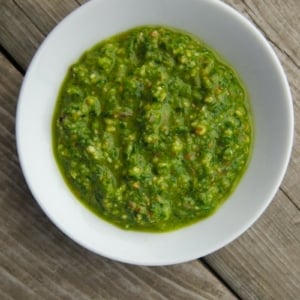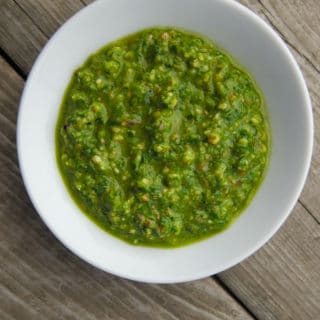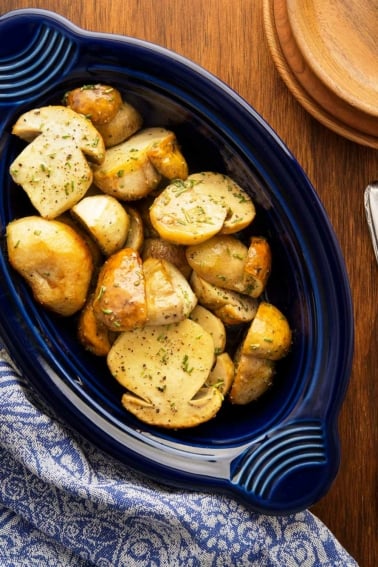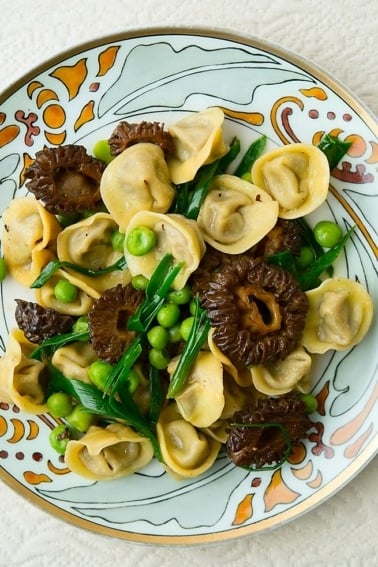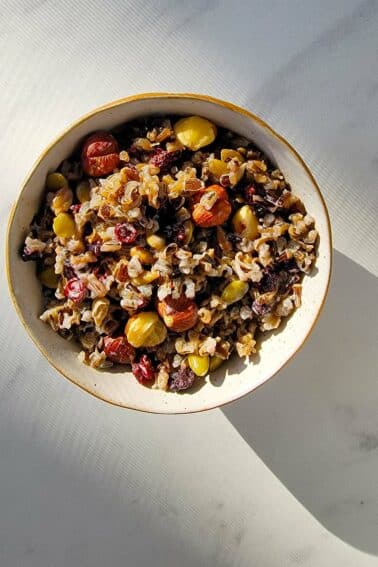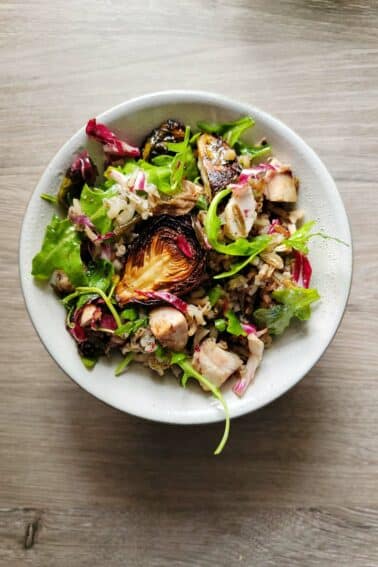As an Amazon Associate I earn from qualifying purchases.
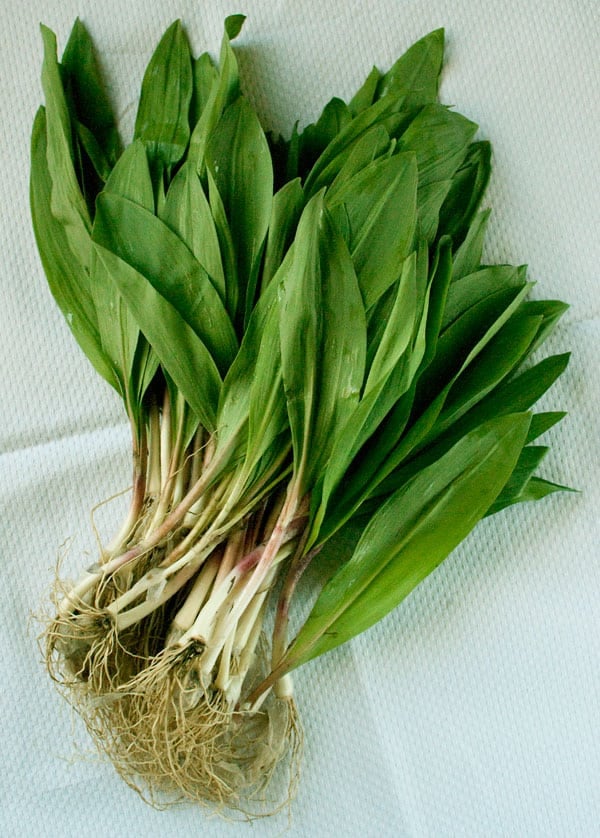
Pesto can be made from really anything: We’ve all seen pesto made with basil of course, but you can also use mint, parsley, cilantro and other herbs. In this case I am making ramp pesto, although you can use other green onions, wild or cultivated.
When I make pesto I want it to last a while in the fridge, so I blanch the greens first. You don’t have to do this, but blanching your green things goes a long way to preventing the dreaded “brown pesto” problem we all face with unused pesto. Blanching kills the enzymes that cause browning.
Here’s how I blanch my green onions for this recipe:
- You will need two or three big handfuls of fresh ramp leaves, about 2 cups, chopped more or less — only you’re not chopping them yet. Get a huge pot of water boiling and add a handful of salt.
- Toss the ramp leaves into the boiling water. Stir around and boil for 30 to 45 seconds.
- Fish them out with a skimmer or the tongs and immediately dump them into a big bowl with ice water in it. Once they are cool, put them in a colander to strain.
- Get a cloth towel, like a tea towel, and put the ramps in it. Wrap one end of the towel one way, then the other end of the towel the other and squeeze out as much moisture as you can.
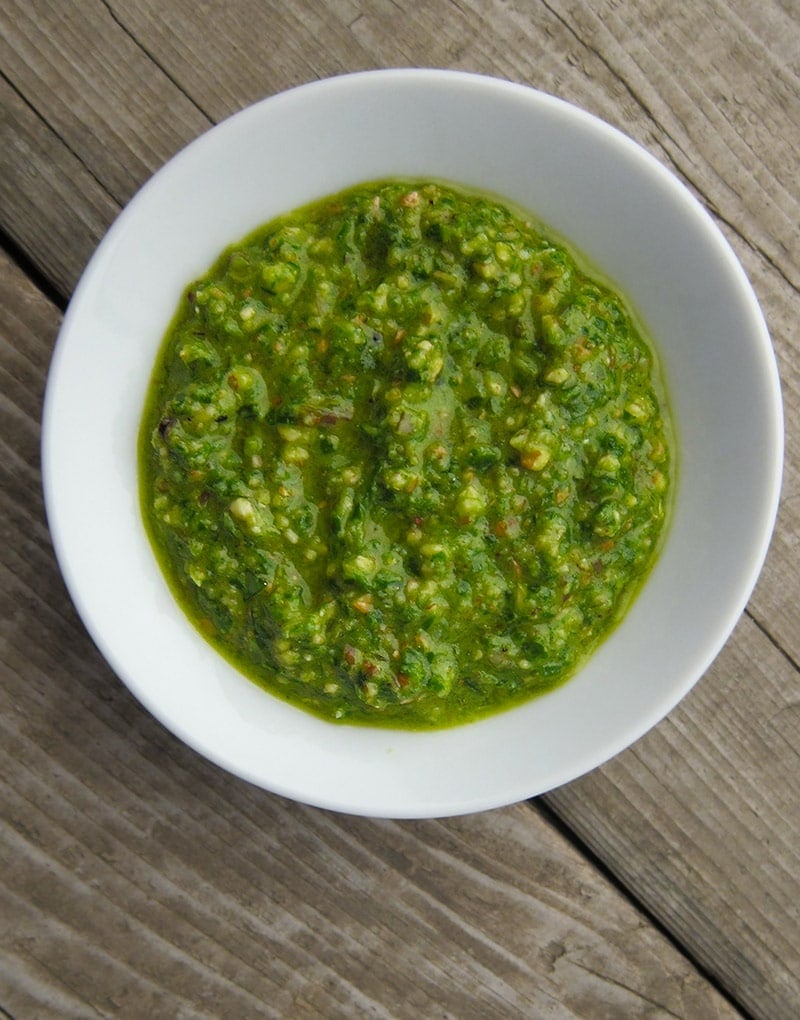
My favorite way to use this pesto is with pasta, especially nettle pasta or the easy-to-make pasta shape called gnocchi ricci. It’s also good spread on toast, or with white meats like chicken or pheasant, or with firm fish such as sturgeon, swordfish or tuna. Play around with it. you’ll find what suits you best.
Store any unused ramp pesto in the fridge, topped with some olive oil to keep the air out. It’ll keep this way for a week or so.
Ramp Pesto
Ingredients
- 3 garlic cloves, roughly chopped
- 1/4 cup toasted pine nuts or chopped walnuts, pecans or almonds
- 3 tablespoons grated cheese, such as pecorino
- 2 cups ramp or other wild onion leaves, about 2 dozen
- Salt to taste
- About 1/2 cup extra-virgin olive oil
Instructions
- f you are blanching your onions, bring a large pot of water to a boil. Add enough salt to make it taste like the sea. Set a large bowl of ice water nearby. Plunge the ramp leaves into the boiling water for 1 minute. Remove and quickly cool them down in the ice water. Squeeze dry with a tea cloth or paper towels.
- Chop the ramp leaves and set aside. Pesto is best made with a mortar and pestle, thus the name, which means "pound." You can of course make this in a food processor, but it will not be the same. To start, add the toasted pine nuts and garlic and crush them.
- Add the cheese and ramps and commence pounding. Mash everything together, stirring with the pestle and mashing well so it is all fairly uniform.
- Start adding olive oil. How much? Depends on how you are using your pesto. If you are making a spread, maybe 1/4 cup. If a pasta sauce, double that. Either way, you add 1 tablespoon at a time, pounding and stirring to incorporate it. When it's a nice rough paste, taste it and add salt if you need to; sometimes the cheese makes the pesto salty enough by itself. Serve as a spread on bread, as an additive to a minestrone, as a pasta sauce or as a dollop on fish or poultry.
Notes
Nutrition
Nutrition information is automatically calculated, so should only be used as an approximation.
